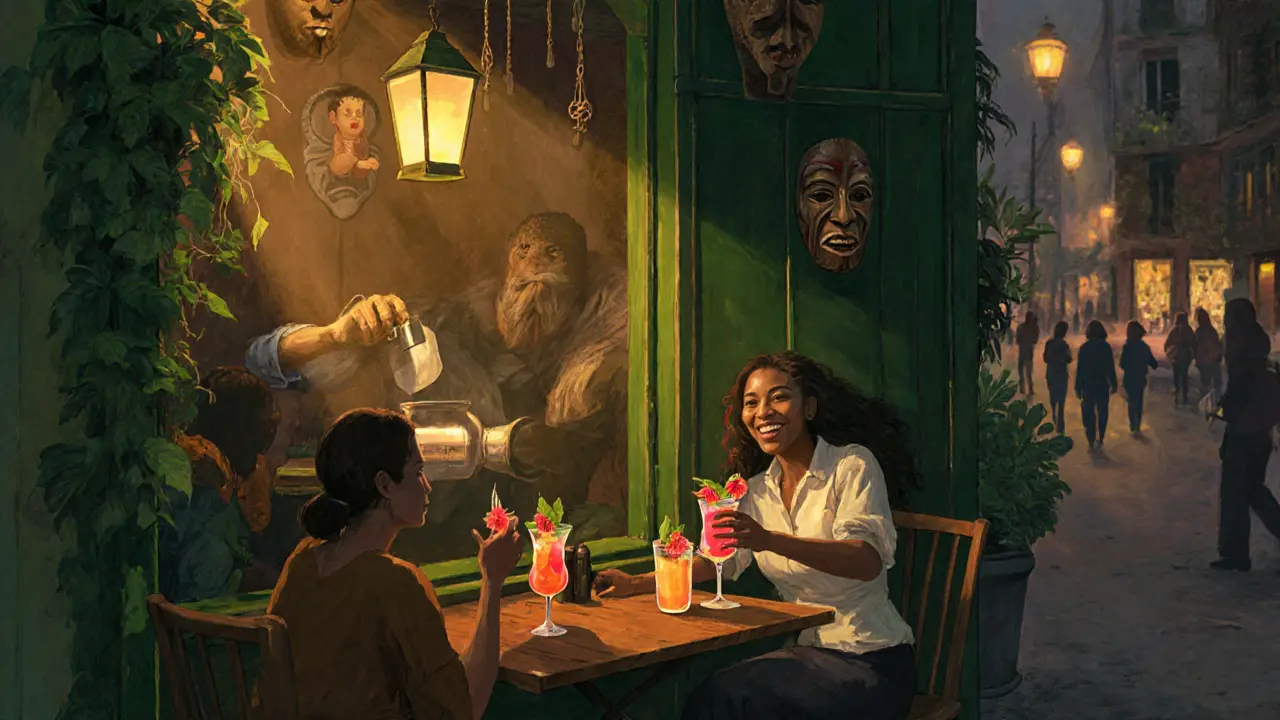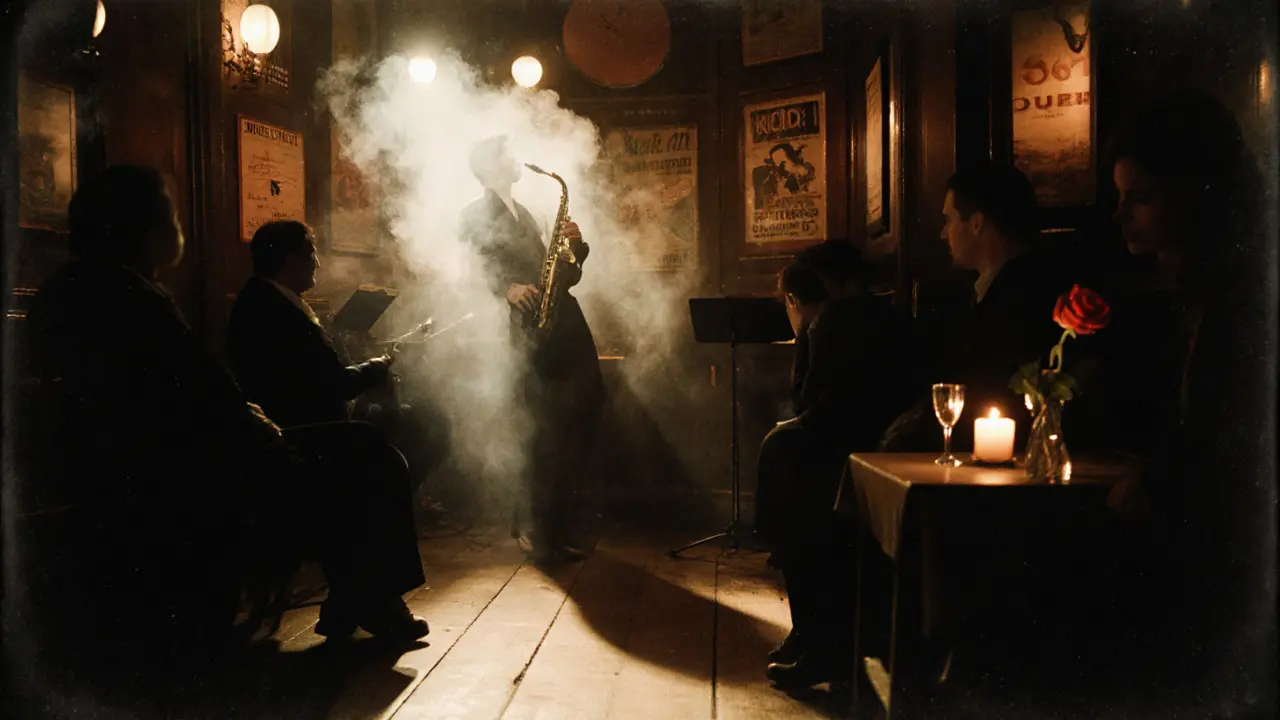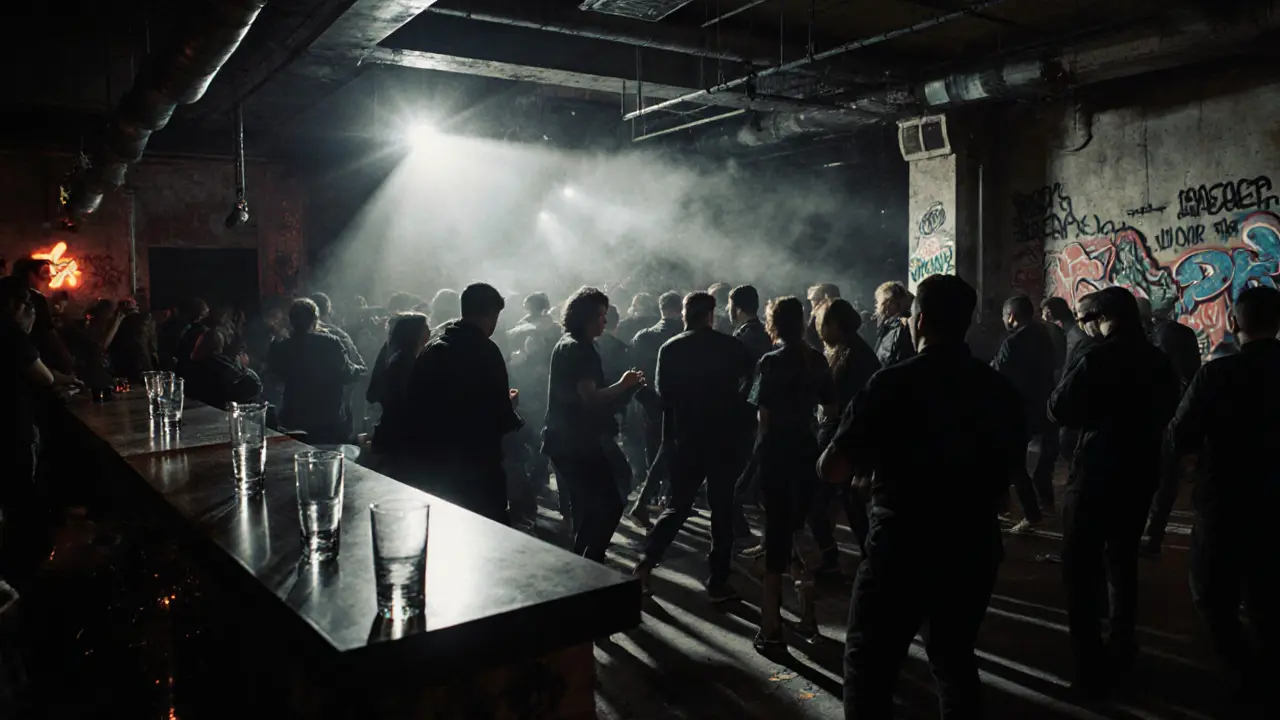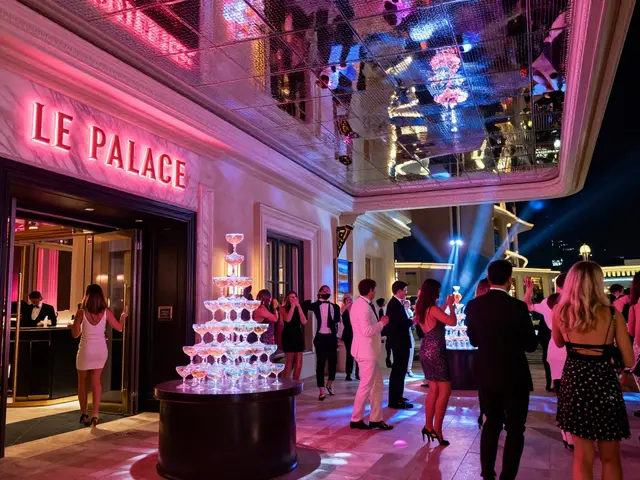Paris doesn’t sleep when the sun goes down. While tourists flock to the Eiffel Tower by day, locals and visitors alike know the real magic happens after midnight. From underground jazz cellars to glittering dance floors in Saint-Germain, Paris offers a nightlife that’s as diverse as its neighborhoods. But with over 1,000 venues scattered across the city, knowing where to go - and when - can feel overwhelming. This guide cuts through the noise. You’ll find exactly where to drink, dance, and see live music without wasting a single hour.
Where to Dance: The Best Clubs in Paris
If you’re looking for a club that actually feels like a club, skip the tourist traps near Champs-Élysées. The real action starts in the 10th, 11th, and 13th arrondissements. Concrete in the 11th is the city’s most talked-about spot. It’s not flashy - just a converted warehouse with industrial lighting, a massive sound system, and a lineup that brings in global DJs like Charlotte de Witte and Ben Klock. Doors open at 11 p.m., but the real energy hits after 1 a.m. Expect a strict door policy - no flip-flops, no sportswear. Bring your best black outfit.
For something more experimental, head to La Cigale in the 18th. It’s not a traditional club, but it’s where Paris’s electronic and techno underground thrives. The crowd is younger, wilder, and less concerned with looking cool. They play vinyl-only sets, and the bass shakes the walls. The bar serves cheap beer and strong cocktails, and the dance floor stays packed until 6 a.m.
Not into techno? Try Le Baron in the 8th. It’s the place where celebrities show up, but it’s still open to the public. Entry costs €20-€30, and you’ll need to dress sharply. The music shifts from disco to hip-hop depending on the night. If you’re lucky, you might catch a surprise guest like Hedi Slimane or a local indie band. Don’t come here if you want to dance - come if you want to be seen.
Where to Drink: The Best Bars in Paris
Parisian bars aren’t about loud music or neon signs. They’re about atmosphere, craft, and conversation. Start with Bar Hemingway at the Ritz. It’s the most expensive bar in the city (cocktails start at €28), but it’s also the most legendary. The walls are lined with vintage books, and the bartenders mix drinks the same way they did in the 1920s. Order the “Sazerac” - it’s made with rye, absinthe, and a single cherry. You won’t find this anywhere else.
For something more local, go to Le Comptoir Général in the 10th. It’s a hidden gem tucked behind a green gate. Inside, it’s part bar, part museum, part jungle. African art lines the walls, and the cocktails are named after African cities. Try the “Lagos” - gin, hibiscus, and lime. The vibe is relaxed, the music is soul and Afrobeat, and no one rushes you. This is where Parisians go after work to unwind.
If you’re into wine, don’t miss Le Verre Volé in the 11th. It’s a tiny space with 60 bottles on the wall, all natural wines from small French vineyards. The owner, Claire, will ask you what you like - fruity? earthy? fizzy? - and pick one for you. No menu. No pretense. Just great wine and honest talk. Most bottles cost €10-€15 a glass. You’ll leave with a new favorite and a friend.
Where to See Live Shows: Music, Comedy, and More
Paris has more live music venues than most European capitals. For jazz lovers, Sunset/Sunside in the 6th is the gold standard. It’s been open since 1985 and hosts nightly sets from rising French jazz stars and touring legends. The room is small, intimate, and smells like old wood and cigarette smoke (yes, they still allow it). Tickets start at €15. Arrive early - the best seats go fast.
For rock and indie, La Cigale (yes, the same one as the club) is also a legendary concert hall. Bands like Phoenix, Christine and the Queens, and even international acts like The National have played here. Shows start around 9 p.m. and usually end by midnight. Tickets range from €25 to €50. Check their calendar online - they often have last-minute free shows for students.
Want something different? Try Théâtre du Rond-Point for French-language comedy. The shows are hilarious, even if you don’t speak fluent French. The humor is physical, exaggerated, and full of local references. Tickets are €18, and the crowd is mostly locals in their 30s and 40s. It’s a rare chance to laugh with Parisians, not just watch them.

When to Go: Timing Matters
Paris nightlife doesn’t follow the same rules as New York or London. Clubs don’t fill up until after midnight. Bars don’t get busy until 10 p.m. And shows rarely start before 9. If you show up at 8 p.m., you’ll be the only one there. That’s okay - it’s the best time to get a good seat at a bar or catch a quiet jazz set.
Weekends are packed, especially Friday and Saturday. If you want to avoid crowds, go on a Wednesday or Thursday. Many clubs offer free entry or discounted drinks midweek. Le Baron, for example, has a “Women’s Night” on Wednesdays with no cover charge. Concrete often has themed nights on Thursdays - think 80s synth or French electro.
Also, remember this: Parisians don’t party until 2 a.m. That’s when the real night begins. If you’re tired by 1 a.m., you’re missing half the fun.
What to Wear: Dress Code Secrets
Dress codes in Paris aren’t about being rich - they’re about being respectful. No shorts, no sneakers, no baseball caps in most clubs. Even in casual spots like Le Comptoir Général, people dress with care. Jeans are fine, but they should be clean and dark. A simple blazer or a nice shirt goes a long way.
Women: Heels aren’t required, but closed-toe shoes are expected. Flat sandals? Not in clubs. A little black dress? Always safe.
Men: Skip the hoodie. A fitted shirt with dark jeans and clean loafers is the universal Parisian uniform. You don’t need a suit - just avoid looking like you rolled out of bed.

How to Get Around: Night Transport
The metro runs until 1:15 a.m. on weekdays and 2:15 a.m. on weekends. After that, you’ll need a taxi or rideshare. Uber is reliable, but prices spike after midnight. A ride from Le Marais to La Défense can cost €25-€35.
There’s also the Noctilien - Paris’s night bus network. It runs from 1:30 a.m. to 5:30 a.m. and connects all major districts. It’s cheap (€2.10 with a standard ticket) and safe. Download the RATP app to track routes. It’s the best way to get home without breaking the bank.
What to Avoid
Stay away from bars near the Arc de Triomphe and the Eiffel Tower. They’re overpriced, crowded with tourists, and serve lukewarm wine. The same goes for “Parisian-themed” cocktail spots that use glitter and fake Eiffel Towers as decor. They’re for Instagram, not experience.
Don’t assume English is spoken everywhere. In smaller bars, staff may not speak much English. Learn a few phrases: “Un verre, s’il vous plaît” (One drink, please), “Combien?” (How much?), and “Merci” (Thank you). It goes a long way.
And never, ever try to haggle over prices. In Paris, the price is the price. If it’s €18 for a cocktail, that’s what it costs. Trying to negotiate will get you ignored - or worse, asked to leave.
Final Tip: Slow Down
The best nights in Paris aren’t about checking off clubs. They’re about lingering at a bar, listening to a stranger’s story, or dancing with someone you just met. Parisian nightlife rewards patience. Don’t rush. Sit. Sip. Listen. Let the city reveal itself after dark.
What time do Paris clubs usually close?
Most clubs in Paris stay open until 5 a.m., especially on weekends. Some, like Concrete and Le Baron, may let people stay until 6 a.m. if the party is still going strong. However, the legal closing time is 5 a.m., and staff will start clearing out around 4:30 a.m.
Is Paris nightlife safe for tourists?
Yes, Paris nightlife is generally safe, especially in areas like Le Marais, Saint-Germain, and the 11th arrondissement. Stick to well-lit streets, avoid isolated alleyways after 2 a.m., and keep your belongings close. Pickpocketing can happen in crowded clubs, so use a crossbody bag and avoid flashing valuables. The metro and Noctilien buses are safe at night, but stay alert.
Do I need to make reservations for bars or clubs?
Most bars don’t require reservations - you can walk in. But for popular clubs like Le Baron or Concrete on weekends, you might need to RSVP through their website or Instagram. Some venues offer free entry if you arrive before midnight. For concerts or comedy shows, always buy tickets in advance - they sell out fast.
What’s the average cost of a night out in Paris?
You can have a great night for €40-€60. That includes one cocktail at a bar (€12-€18), a few drinks at a club (€10-€15 each), and maybe a €20 cover charge. If you skip the clubs and stick to bars and live music, you can do it for under €30. Alcohol is expensive, but wine by the glass in local spots is often cheaper than bottled water in tourist zones.
Are there any free nightlife options in Paris?
Yes. Many jazz clubs offer free entry on Tuesdays or Wednesdays. Le Comptoir Général often has free live acoustic sets on weekend evenings. The Musée d’Orsay sometimes hosts late-night openings with free music and drinks after 7 p.m. Also, check out street performances in Montmartre or along the Seine - they’re free, spontaneous, and unforgettable.


